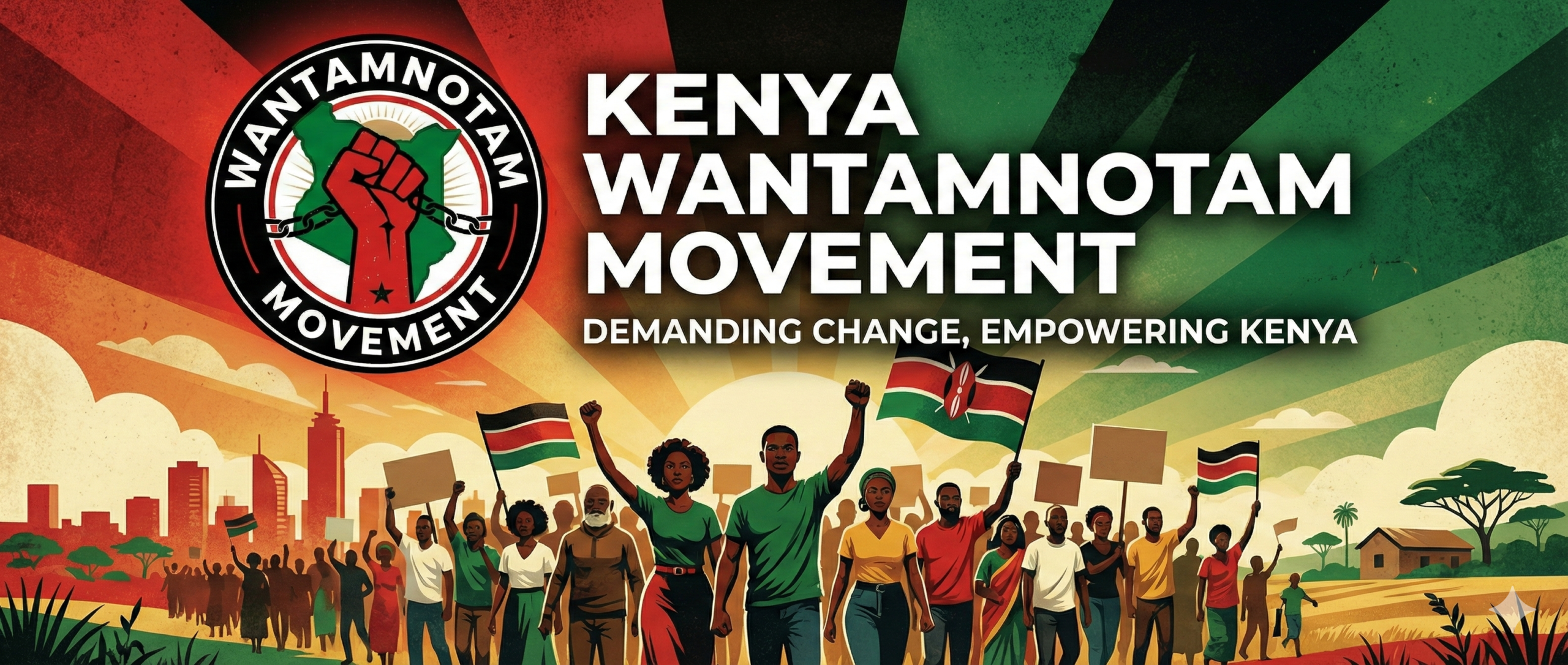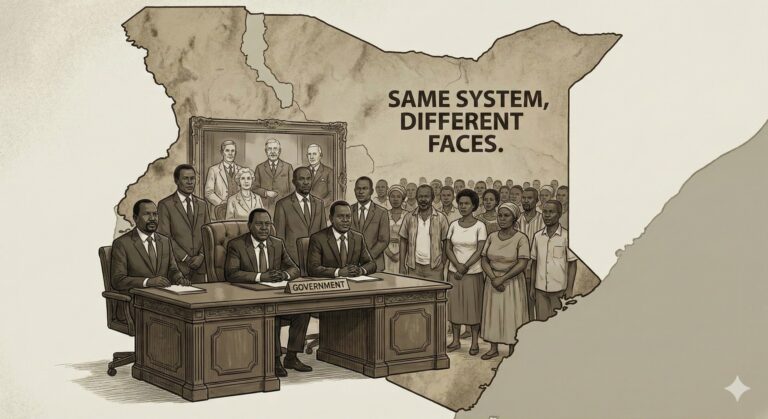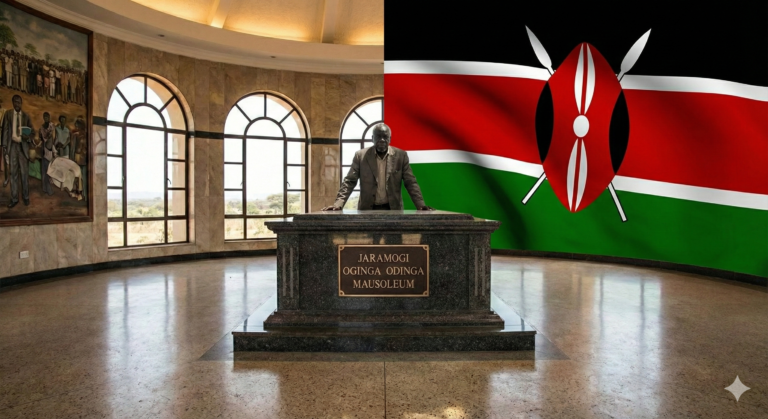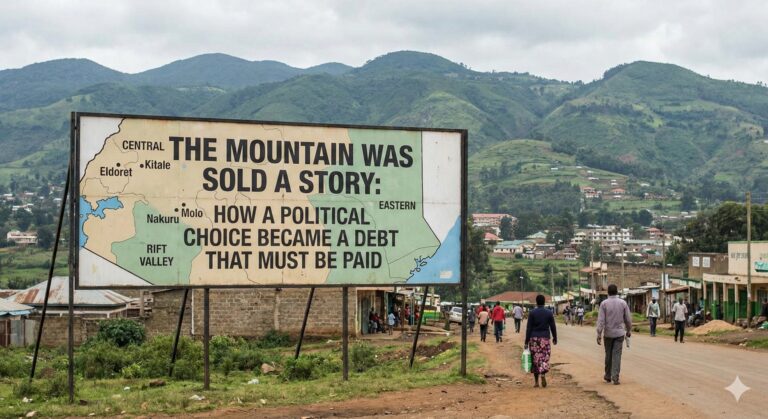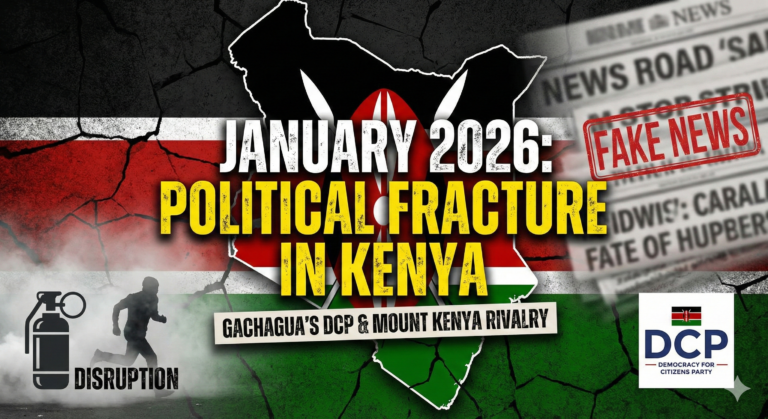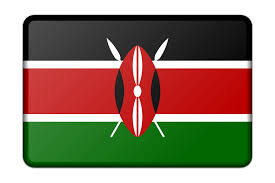
Kenya’s System of Corruption: The Elites and the Fight for a New Kenya
Kenya’s political system has been plagued by corruption since its inception in 1963. While the masses—ordinary citizens—have struggled to make ends meet, the political elites have thrived. Raila Odinga, along with other influential figures, has long been part of this system. His moves have often involved cutting deals with Kenya’s most powerful leaders, including Moi, Kibaki, Uhuru, and now Ruto. So, how do we break the cycle? What is the solution? The answer is clear: a total overhaul of the system. Kenya needs a new constitution—one that puts power back in the hands of the people. This essay explores the entrenched corruption in Kenya’s political structure and presents a case for the necessity of a fresh start.
The System Was Always Designed to Enrich the Elites
When Kenya gained independence, the narrative of freedom and equality was sold to the masses, but the reality was far different. The political elites who came into power after independence cut deals with the colonial masters, securing not only their positions but also vast economic benefits. These elites understood that power was their currency, and so they ensured that it remained within their grasp.
The system created in 1963 was never intended to benefit ordinary Kenyans. The elite ruling class controlled key aspects of the economy, including land, resources, and political power, leaving millions of people locked in poverty. The colonial structures of governance, though modified, persisted. The promises made to the people were empty, and the exploitation continued under a different guise.
In this system, the vast majority of Kenyans—Onyango, Wanjiku, Otieno, Hussein, Ngala, Wanyonyi, and countless others—were deliberately left behind. The political elite secured their wealth and power, while the rest of the population struggled to access basic services like education, healthcare, and infrastructure.
Raila Odinga: A Product of the System
Raila Odinga, despite his claims to stand against the establishment, has spent his entire life maneuvering within the very system that has perpetuated inequality. Raila’s political career is a testament to his understanding of the system. His goal has always been to secure a seat at the table, and he has done so by cutting deals with powerful figures such as Moi, Kibaki, Uhuru, and now, Ruto.
His persistence in attempting to become president reveals the lengths to which he is willing to go to gain access to the power that has been monopolized by a select few. Raila knows that without breaking into the elite circles of Kenya’s political and economic power, it’s impossible to make significant change. This is why every time he loses an election, he doesn’t accept defeat. Instead, he goes back to negotiate with the powers that be.
While one might admire his resilience, the question remains: how much of the system can he really change when he’s part of it? Raila’s story highlights a critical issue: the political system in Kenya is not broken. It is working exactly as it was designed—it’s just that only the elites benefit from it.
The Current System Keeps the Elites Rich and the People Poor
Let’s look at Kenya today. The elites—comprising powerful politicians, wealthy business tycoons, and influential families—continue to accumulate wealth, land, and resources. Meanwhile, ordinary Kenyans—like you—are left struggling to survive. The country’s poverty rate remains high, and millions of people still lack access to basic healthcare, education, and decent housing.
The government has been ineffective in addressing the needs of the people. Politicians make promises during election campaigns, only to disappear into their mansions once they’ve secured their positions. Meanwhile, the people—whose taxes fund these politicians’ lifestyles—see little to no benefit.
The biggest problem isn’t the inefficiency of the government—it’s the structure itself. The political and economic system was never designed to benefit the majority. Instead, it was crafted to keep the rich getting richer, while the poor remain stuck in a cycle of poverty.
Why the 2010 Constitution Isn’t the Answer
The 2010 Constitution was hailed as a step toward reform, but in reality, it has done little to alter the entrenched systems of corruption. While it introduced some changes, such as devolution and a more democratic electoral system, it has not addressed the core issue: power and resources remain concentrated in the hands of the elites.
Under the current system, the national government controls a disproportionate amount of the budget, while counties—the areas where most Kenyans live—receive a small fraction of it. This skewed distribution of resources has resulted in underfunded local governments, inadequate infrastructure, poor healthcare systems, and failed education programs.
While the Constitution has given lip service to reform, the reality is that the elites have manipulated it to maintain their hold on power. The result is that Kenyans are still trapped in a system that serves only the political and economic elites, leaving the rest of the population to suffer.
A New Kenya: The Call for a Total Overhaul
The solution to Kenya’s problems isn’t minor tweaks to the current system. It’s time to burn the entire system down and start fresh. The Constitution that has kept the people at bay for so long must be abolished, and a new one should be crafted—one that genuinely puts power back into the hands of the people.
This new constitution must be one that addresses the needs of ordinary citizens. The counties should receive at least 70% of the national budget, while the national government should only receive 30%. The current imbalance in resource distribution has left the counties, where the majority of the population lives, underdeveloped and struggling. With a larger share of the budget, counties would have the resources to improve infrastructure, healthcare, and education.
Moreover, citizens must be directly involved in crafting this new constitution. It’s time for a referendum that allows every Kenyan, from the poorest village to the largest city, to have a say in how the country should be governed.
The Kenyattas’ Land: A Symbol of Inequality
One of the starkest examples of the inequality in Kenya is the land owned by the Kenyatta family. The Kenyattas, like other political families, have amassed thousands of acres of land—the size of an entire country like Rwanda. Meanwhile, ordinary Kenyans own nothing. How did the Kenyattas acquire such vast amounts of land? Who gave them permission to take it?
This isn’t a one-off issue; it’s a pattern. After independence, Moi took his share of the country’s wealth, consolidating power and wealth through land acquisition. Kibaki did the same. Uhuru followed suit, accumulating wealth and land at the expense of ordinary citizens. Now, Ruto appears to be attempting the same. But there’s one key difference: the people are awake. The Gen Z generation, in particular, has rejected this system. They are no longer complacent or passive. They are demanding change, and they are ready to fight for it.
A New Kenya: The Solution
The question remains: how can Kenya fix its corrupt system? The answer is clear: the power must be returned to the people. It’s time for a complete overhaul. Ordinary Kenyans must take action now. Don’t wait for the next election. Don’t wait for a political savior. It’s time to rise and demand a system that works for you.
Taking Action: Your Role in Rebuilding Kenya
Kenya needs a total political transformation. The time for small reforms is over. You don’t have to wait for politicians to fix things. The power is in your hands. Take action now. Join the movement for a new constitution. Speak out, organize protests, engage in social media campaigns—whatever it takes to demand change.
It’s up to you to ensure that the future of Kenya is no longer dominated by corrupt elites. The power is in your hands. When citizens stand united and demand what is rightfully theirs, the corrupt elites will have no choice but to listen.
CLICK HERE:Listen To WANTAMNOTAM PODCAST AND TAKE ACTION
